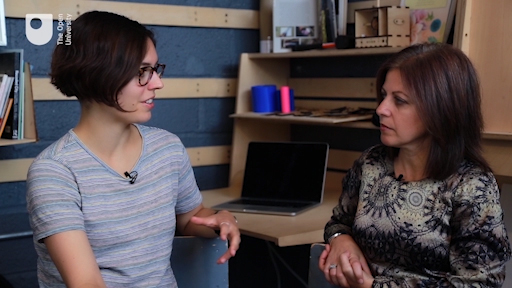3.3 Creating new types of value across business functions
This section so far has sought to highlight the need to create new types of organisational value. This can entail reorienting existing processes to achieve more expansive ‘social’ value propositions, or transforming how they realise traditional economic ones. However, as this course has stressed throughout, creating and sustaining organisational value is always multifaceted and runs across its different functions. The same is true for the creation of new organisational value. It is imperative, therefore, to explore in more depth how these new types of value can be manifested within organisational functions – particularly operations management, financial accounting, and business intelligence.
Operations management is a good place to start as it encompasses the entirety of an organisation’s processes and activities. Novel perspectives linked to ‘lean’ management dramatically transform how organisations design their activities and relate to external suppliers and customers. It also reveals the ways that environmental concerns have ushered in ideas of a ‘circular economy’, transforming organisations to maximise their sustainability and minimise their carbon footprint. Similarly, new technologies are poised to impact the very way organisations are operated and managed. Digital fabrication, for instance, in which products are made to design through 3D printing, could revolutionise production practices, leading to distributed manufacturing in which people can use agreed upon designs to make products locally, wherever they are in the world.
In terms of financial accounting, the ways in which organisations are financed and allocate their budgets could be rapidly shifting. The traditional model of seeking out a large private or public funding source is being transformed. Crowdfunding, for example, allows for a more democratic funding model that is not reliant on corporate shareholders or government stakeholders – ideas can become a reality more quickly, with less market or stakeholder pressure. Likewise, participatory budgeting within municipalities could be adopted within workplaces, providing a high-tech platform for empowering employees to contribute to organisational priorities and strategies.
Business intelligence can also play a vital role in this new value creation. At present, the data analysis and information systems are specifically oriented toward established value frameworks such as improving efficiency, productivity, and profits. This need not be the case. Rather, they could be channelled into creating analytics that track the value added by managers and corporate executives, thereby creating a fairer allocation of resources. Or they could assist people in finding a distributed manufacturing centre that best fits their geographical and user needs. What is crucial, in this respect, is that such ‘intelligence’ is directed toward the innovative creation of new value within and across different organisatonal functions.
Activity 6 Creating new types of value across organisational functions
Watch the following video clip from the Open University documentary ‘The Future of Empowerment Today’, in which OU academic Dr. Cinzia Priola interviews members of the organisation ‘Disrupt Disability’. You may want to find out more about Disrupt Disability at the organisation's website [Tip: hold Ctrl and click a link to open it in a new tab. (Hide tip)] .

Transcript: Video 3 The future of empowerment today
Once you have watched the video, fill out the table below. It asks you to match organisational activities and functions to the new types of value. Each activity connects to one new type of value, but may be linked to more than one organisational function.
Organisational Activity
- Allows each user to design their wheelchair based on their specific lifestyle and needs.
- Uses digital fabrication technology as part of maker space to easily and inexpensively design and print prototypes.
- Exploits distributed manufacturing methods to cheaply produce wheelchairs for users while reducing their carbon footprint.
- Involves a community of designers that go beyond medical professionals including artists, craftsmen, and wheelchair users themselves.
- Designs are digitally and freely shared so they can be drawn upon and expanded by other members of the designer community.
- People are part of a community of users and makers ranging from global design network to globally connected collection of distributed manufacturers, allowing individuals to have access to both the use and production of these wheelchairs.
Organisational Function
- Operations Management
- Financial Accounting
- Business Intelligence
| New Type of Value | Organisational Activity | Organisational Function |
|---|---|---|
| Environmental Sustainability | ||
| Social Inclusiveness | ||
| Personalisation | ||
| Collaboration | ||
| Community/User-led | ||
| Openness |
Answer
| New Type of Value | Organisational Activity | Organisational Function |
|---|---|---|
| Sustainability | Exploits distributed manufacturing methods to cheaply produce wheelchairs for users while reducing their carbon footprint. | Operations Management Financial Accounting |
| Inclusiveness | Involves a community of designers that go beyond medical professionals including artists, craftsmen, and wheelchair users themselves. | Business Intelligence |
| Personalisation | Allows each user to design their wheelchair based on their specific lifestyle and needs. | Operations Management |
| Collaboration | Uses digital fabrication technology as part of maker space to easily and inexpensively design and print prototypes. | Financial Accounting Business Intelligence |
| Community/User-led | People are part of a community of users and makers ranging from global design network to globally connected collection of distributed manufacturers, allowing individuals to have access to both the use and production of these wheelchairs. | Operations Management Business Intelligence |
| Openness | Designs are digitally and freely shared so they can be drawn upon and expanded by other members of the designer community. | Operations Management Business Intelligence Financial Accounting |
